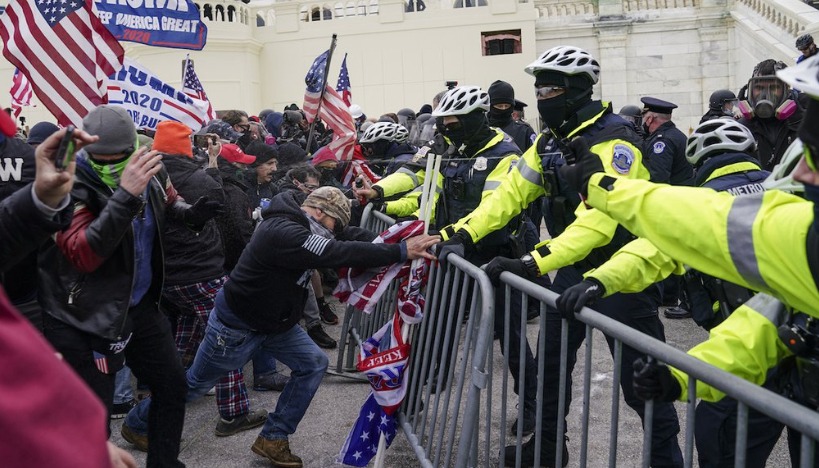A Major Victory for Democracy in Georgia
In a significant win for democracy, Fulton County Superior Judge Robert McBurney has made it clear that local officials must certify election results. This ruling is a strong reminder that every vote counts and that our election processes must be protected.
The Ruling Explained
Judge McBurney wrote an 11-page ruling stating that county election officials have a “mandatory fixed obligation” to certify the results of elections. This means they cannot ignore or exclude any votes, even if they have concerns about errors or fraud. This ruling came in response to a complaint filed by Fulton County election board member Julie Adams on September 12, 2024.
What Julie Adams Argued
Julie Adams asked the court to allow individual members of county boards of elections to decide whether to certify results. She wanted all board members to have full access to election-related materials. However, the judge disagreed with her arguments.
Key Points from the Judge’s Decision
In his ruling, Judge McBurney emphasized:
- There is no law that allows election officials to skip certification.
- The law clearly states that election superintendents must certify results by 5 p.m. on the Monday after an election.
- Concerns about miscounts do not give officials the right to delay certification.
Importance of Timely Certification
According to Georgia law, election superintendents must complete their certification duties promptly. This ensures that the election process remains transparent and trustworthy. If officials delay or refuse to certify, it undermines the very foundation of our democracy.
Challenges from Republican Officials
Since 2020, many Republican county election officials have refused to certify election results. Reports indicate that at least 19 Georgia county election board members have failed to fulfill this important duty. This behavior raises serious concerns about the integrity of our elections.
Standing Up for Democracy
We know that some will try to manipulate the system to deny the true outcome of elections. They may create chaos or seek to have Congress decide the winner of presidential elections. It is crucial for us to remain vigilant and support those who are fighting for our democratic rights.
Thanking Our Allies
We are grateful to dedicated individuals like Marc Elias and others who are working tirelessly to protect our democracy from those who wish to undermine it. Their efforts remind us that we all have a role to play in safeguarding our electoral process.
What You Can Do
Let’s continue to stand up for democracy. Here are some ways you can help:
- Stay informed about local election laws and processes.
- Support organizations that work to protect voting rights.
- Encourage friends and family to vote and participate in elections.
Conclusion
In conclusion, the recent ruling by Judge McBurney is a victory for all who believe in democracy. It reinforces the idea that every vote matters and that we must uphold the integrity of our elections. Together, let’s keep fighting for a fair and just electoral process!
Top 10 FAQs Related to Georgia Judge’s Ruling on Election Certification
1. What is the significance of the Georgia judge’s ruling?
The ruling ensures that county election officials must certify election results, which is crucial for maintaining the integrity and transparency of the electoral process.
2. Who is the Georgia judge who made this ruling?
The article does not specify the name of the judge, but it highlights the importance of their decision in upholding democratic principles.
3. What are the implications of this ruling for election certification in Georgia?
The ruling mandates that county election officials must certify election results, which helps to prevent delays and ensures that the electoral process is completed as scheduled.
4. How does this ruling impact the broader democratic process in the United States?
This ruling is seen as a win for democracy as it reinforces the importance of timely and accurate election certification, which is essential for maintaining public trust in the electoral system.
5. What are some potential challenges or controversies surrounding this ruling?
The ruling may face challenges from political groups or individuals who disagree with the decision, potentially leading to legal appeals or political backlash.
6. How does this ruling affect the certification of election results in other states?
The ruling is specific to Georgia and does not set a precedent for other states, although it may influence similar legal decisions in the future.
7. What role do county election officials play in certifying election results?
County election officials are responsible for verifying the accuracy and completeness of election data before certifying the results, ensuring that they meet legal and procedural standards.
8. Can the certification of election results be appealed or challenged?
Yes, the certification of election results can be appealed or challenged through legal channels, potentially leading to further court proceedings.
9. How does this ruling align with broader efforts to protect and strengthen democracy in the United States?
The ruling aligns with efforts to protect and strengthen democracy by ensuring that election processes are transparent, fair, and timely, which helps maintain public trust in the electoral system.
10. What are the next steps following this ruling in Georgia?
The next steps involve county election officials proceeding with the certification of election results as mandated by the judge’s ruling, followed by any potential legal appeals or further actions.








